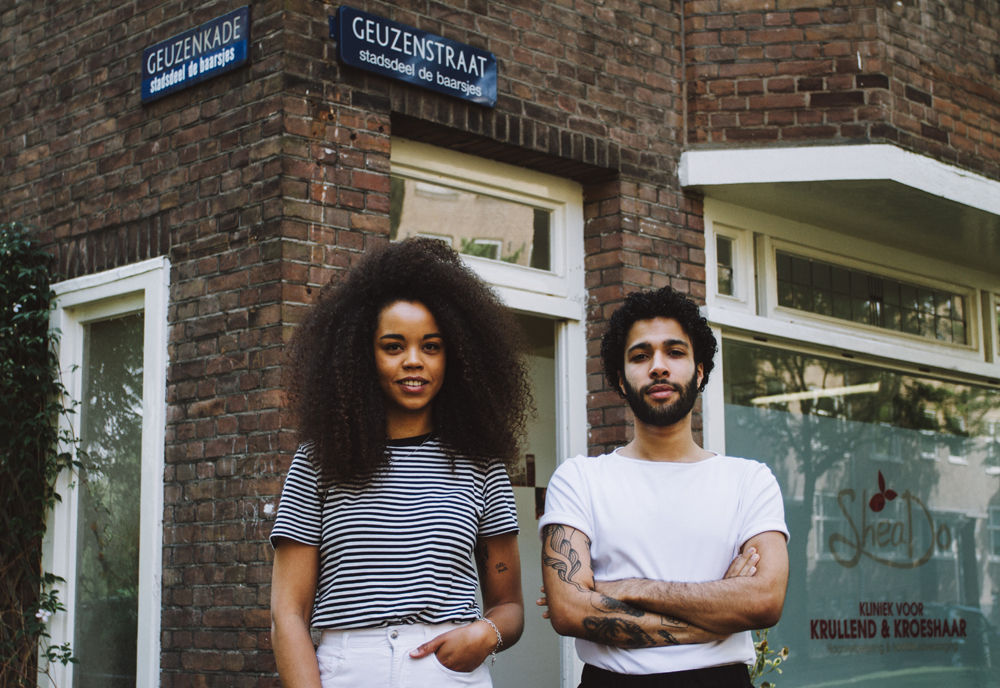Dutch writers Ruby Cruden (left) and Bo Hanna (right).
i-D Hair Week is an exploration of how our hairstyles start conversations about identity, culture and the times we live in.
This article was originally published by i-D Netherlands.
For Hair Week, i-D Netherlands delved into the local situation for people of color who want to keep their hair natural, and found it seriously lacking. There is a dearth of hairdressers and haircare products that are right for their hair. Amsterdam-based writers Bo Hanna and Ruby Cruden know this struggle well, and the need for change. But they found some solid hope in Dominique Snip, a woman working within the hair industry to make a real difference.
Ruby: The discussion around challenging the prevailing beauty standards has grown hugely in the past few years. When I did some modeling work, I noticed that stereotypical beauty ideals were the very much the norm here. I had to straighten my hair for almost every job I got, so that I would fit in with the rest of the models. As a 15 year-old girl who had just started out in the modeling world, I believed that if I wore my hair in a natural way, I would never get booked. Thankfully I can now say I’m proud of my natural hair. I’ve realized that conforming to western beauty ideas would never make me happy. But as many people with afro hair have, I experience awkward encounters every day. I get a lot of questions about my hair: “Is that all real?” “How do you wash your hair?” And perhaps the most asked question: “Can I touch it?”
Bo: I get pulled up about my hair constantly. Recently a woman asked me how expensive my wig was. People probably don’t mean to be offensive, but these reactions come from ignorance. When I was traveling through the Balkans and Eastern Europe, for example, where there is almost no one with afro hair, a lot of people wanted to take a picture with me, which was weird. Part of my family are from Egypt, and I’ve noticed how those with thick, curly hair always straighten and stay out of the sun so they won’t get a darker skin tone. Then there’s the regular comments made about how beautiful a family member is who has light eyes, sleek hair and pale skin. Here in Amsterdam, a multicultural city in the heart of Europe, it’s absurd that people of color still get constantly bombarded with questions and comments about something growing naturally from our heads.
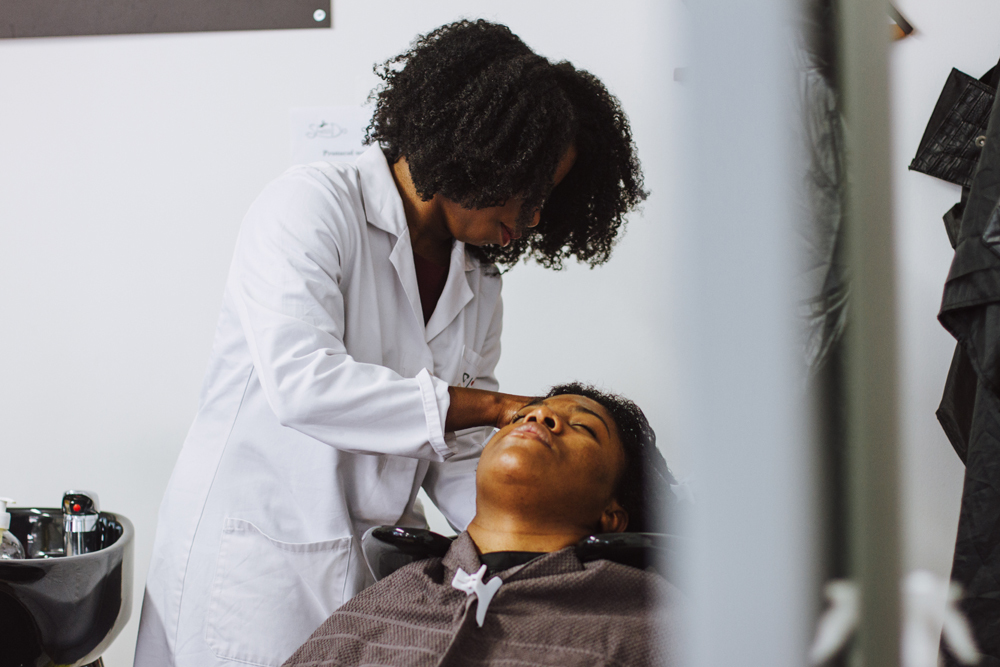
Bo: Feeding into the othering we experience is the lack of hairdressers who know how to deal with our hair, even at a basic level. When I actually tried to go to a hairdresser, I was sent away twice in a row, with one saying “they could try” to cut it. The salon industry here has not embraced afro hair. But there is hope! It comes in the form of Dominique Snip, founder of the Kroeshaar Academy, a school where they teach students how to cut afro hair. From Suriname, in South America, Dominique was sick of the lack of haircare for people of color in The Netherlands, so in 2012 she decided to do something about it. She started her own line of hair products designed to work with really thick, curly hair, rather than fight against it. We visited her academy to talk about changing the hair industry from the inside.
“When I was younger and still lived in Suriname, I didn’t consciously think about hair and hair products,” Dominique says. “In Suriname it’s part of our culture to care for, and cut each others hair in our homes.” She didn’t accept her own hair for years. “I relaxed my it with often harmful chemicals, from when I was 11 years old. At one point I was so over it, I decided to embrace my natural hair,” says Dominique. “Young girls with afro hair look up to role models like Beyoncé and Rihanna who often relax their hair or wear a weave,” says adds. “Fortunately, more and more people — like me — are learning to love their natural hair. We have to teach our children from an early age that their dark skin and their hair is beautiful.”
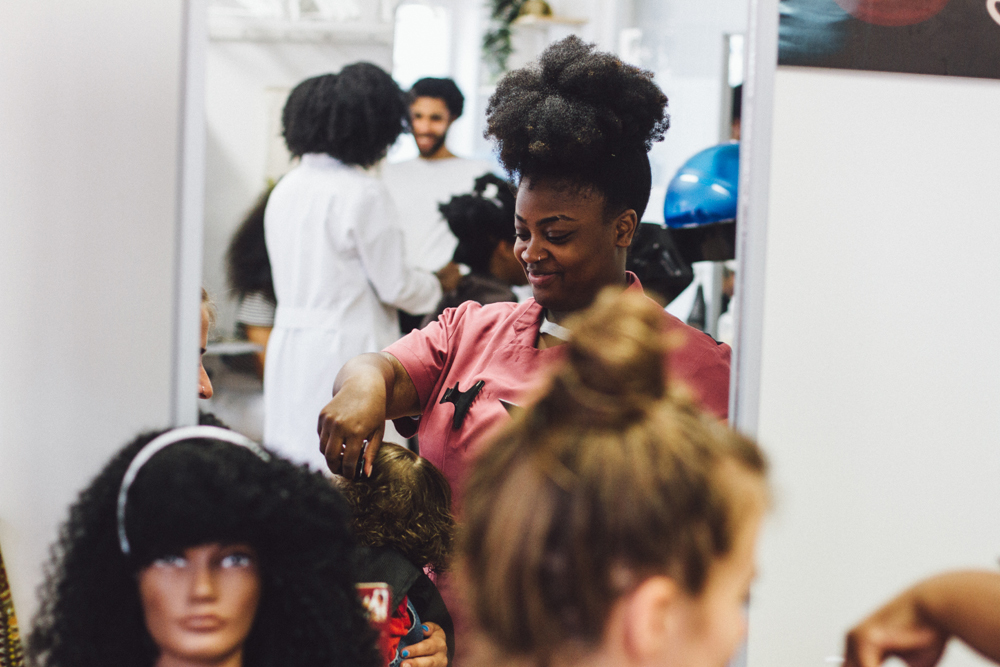
When we asked Dominique why she relaxed her hair for such a long time, she told us she didn’t think there was another option. “My mother and aunt also relaxed their hair, so I basically grew up with it. I never thought about wearing my hair naturally” she says. “Later on, I got inspired by American women on the internet who accepted their natural afro hair.” The lack of knowledge in the Netherlands when it comes to afro hair is stark. “Many of my customers have had traumatic experiences,” she says. “Hairdressers often treat afro hair with the wrong products. At my salon it’s different; I treat it the way it deserves to be treated.”
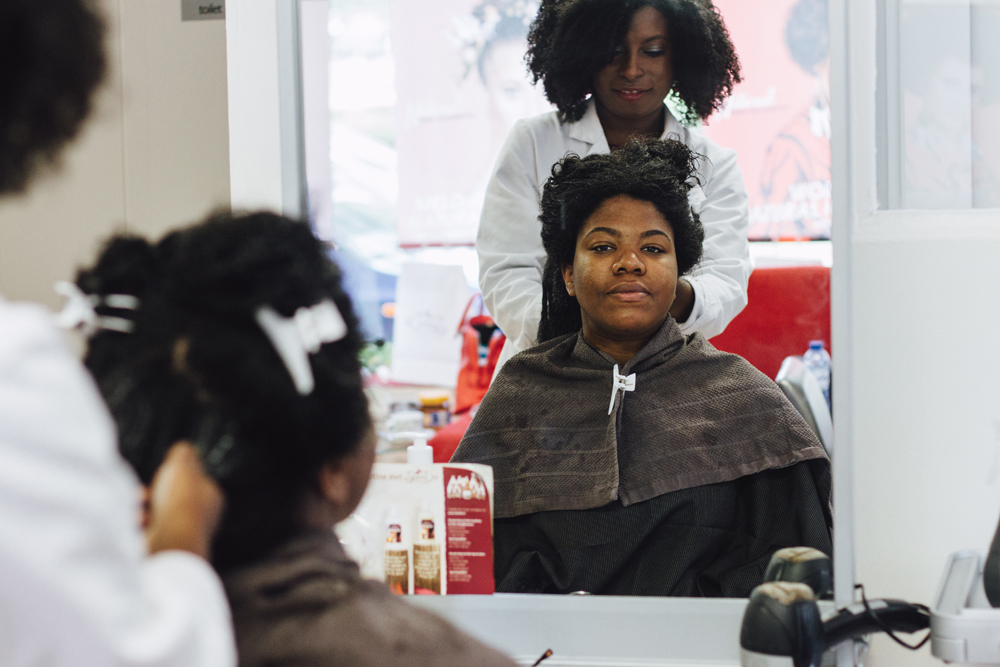
According to Dominique, the problem is rooted in the industry. “I’ve spoken with several hairdresser training schools and their argument for students not being able to work with afro hair is often that they can’t find internships for their students,” says Dominique. “Due to a lack of officially sanctioned education, many afro hairdressers are not validated by the industry and often work from home. Because of this, we’re stuck: hairdressers with knowledge about afro hair can’t train students and schools can’t offer recognized internships.”
Of course cultural racism plays into this exclusion. “When Sylvana Simons [Dutch politician] was a guest on the TV show De Wereld Draait Door, people were tweeting denigrating things about her hair,” Dominique says of a recent example. But she’s positive that things can and are changing, and is working to be a part of that push, helping to educate a new generation of hairdressers on working with afro hair. “I want to collaborate more with other courses, so there is healthy growth and development,” she says. “I see that more and more hairdressing courses offer electives on afro hair. Of course that’s not enough, but it’s a step in the right direction.
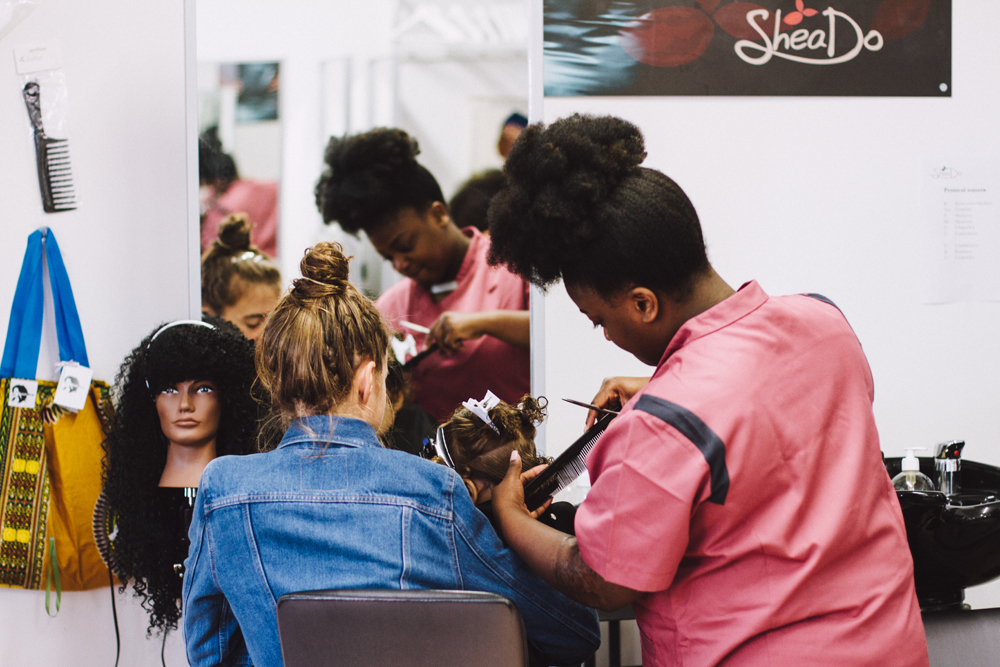
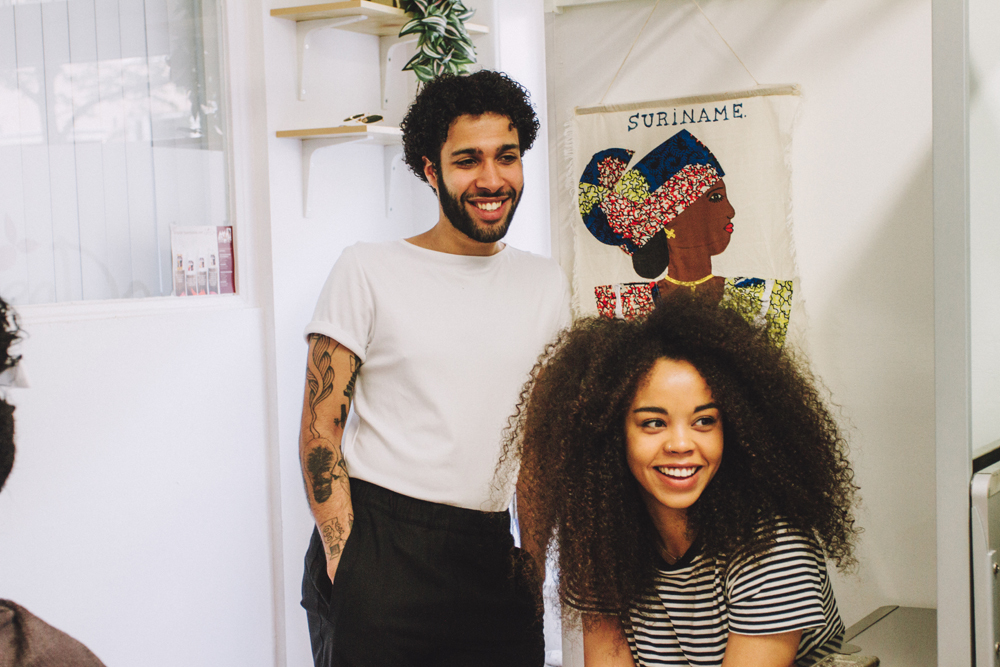
Credits
Text Bo Hanna and Ruby Cruden
Photography Frederieke van der Molen
